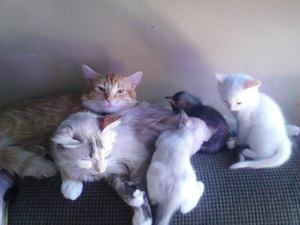Positive discipline consists of more than disciplining your child in a calm manner. Positive discipline for children should consist of steps that lead to the child’s well-being and development, teach a lesson about the issue at hand, and not be condescending in nature. In positive discipline for children, the action taken should lead to the child understanding why his or her behavior was wrong, as well as teach that child a life lesson that will help to prevent similar incidents in the future.
First, there are a few things to remember about positive discipline for children. Every family will not follow the exact same methods, as every family is different. Also, different methods should apply to different situations. A child who has hit another child should not be getting the same form of positive discipline as a child who forgot to make his bed before breakfast.
Different misbehaviors have different consequences and the discipline should fit accordingly. Also, remember to always follow through. Any form of positive discipline for children that is discussed, yet not carried out, will be ineffective. Not following through shows a child that he or she can do certain things without consequences and that isn’t a good idea because that is not how the world works.
One good form of positive discipline for children is to add on an extra daily chore for a week. Doing this can teach a child responsibility. At the same time, it also teaches a child that there are consequences for actions.
Another good form of positive discipline is to have a journal for each time a child misbehaves. The child should write down what his or her feelings were during the time of the act, as well as why he or she committed the misbehavior. This should be a private journal between parent and child. None of the children should ever see each other’s journals. Once the child has written down the thoughts, the parent should in turn, respond to those thoughts with understanding, as well as a way for the child to resolve that type of situation in the future.
I also like to keep a jar for each kid in a place easily accessible by older children, but out of reach of younger children. In each kid’s jar is any money they have that isn’t for savings. Each time one of the kids does something that hurts another in some way, they have to take out a pre-determined amount (depending on what they’ve done) and place it into the child’s jar who they’ve hurt or offended.
Each time they do something good for someone, I might place a certain amount of money into their jar, but not always. This form of positive discipline for children reflects what may happen in adult life. In adult life, if we hurt someone, we are likely going to be paying for it in the long run. Likewise, if we do good deeds, eventually they will come back around. However, it doesn’t work that way every single time, which is why I only give the money sometimes.
Volunteer work is also a great form of positive discipline. You never want to insinuate that the volunteering is a form of punishment because that sends the wrong message. You instead want to say something like, “I noticed that you were unhappy about some of the food choices we made in the grocery store. How about we go together and donate those foods to people who don’t have the same type of choices we have?”
Then, go from there with the volunteer work. This will likely trigger the child’s thought process and let him or her realize that they cannot always have everything they want. It hopefully will also cause them to think twice about complaining when they know there are kids out there who don’t have a fraction of what they do.
Similar to the volunteer work, another great method is to elect the offending child as “Favor Giver of the Day.” For one day, this person has to do at least one requested good deed for each member of the household. This form of positive discipline for children is good for when the child has disrespected one or more family members. This lesson usually teaches a child that it’s more fun to help others than it is to mistreat them.
Note: The author’s positive parenting method has evolved into what she calls Upstream Parenting.
More from Lyn:
Positive_Parenting _Does _Not_Mean_Zero_Discipline
Easy_Discipline_Tricks_for_Babies
Homeschool:Discipline_During_School_Hours
